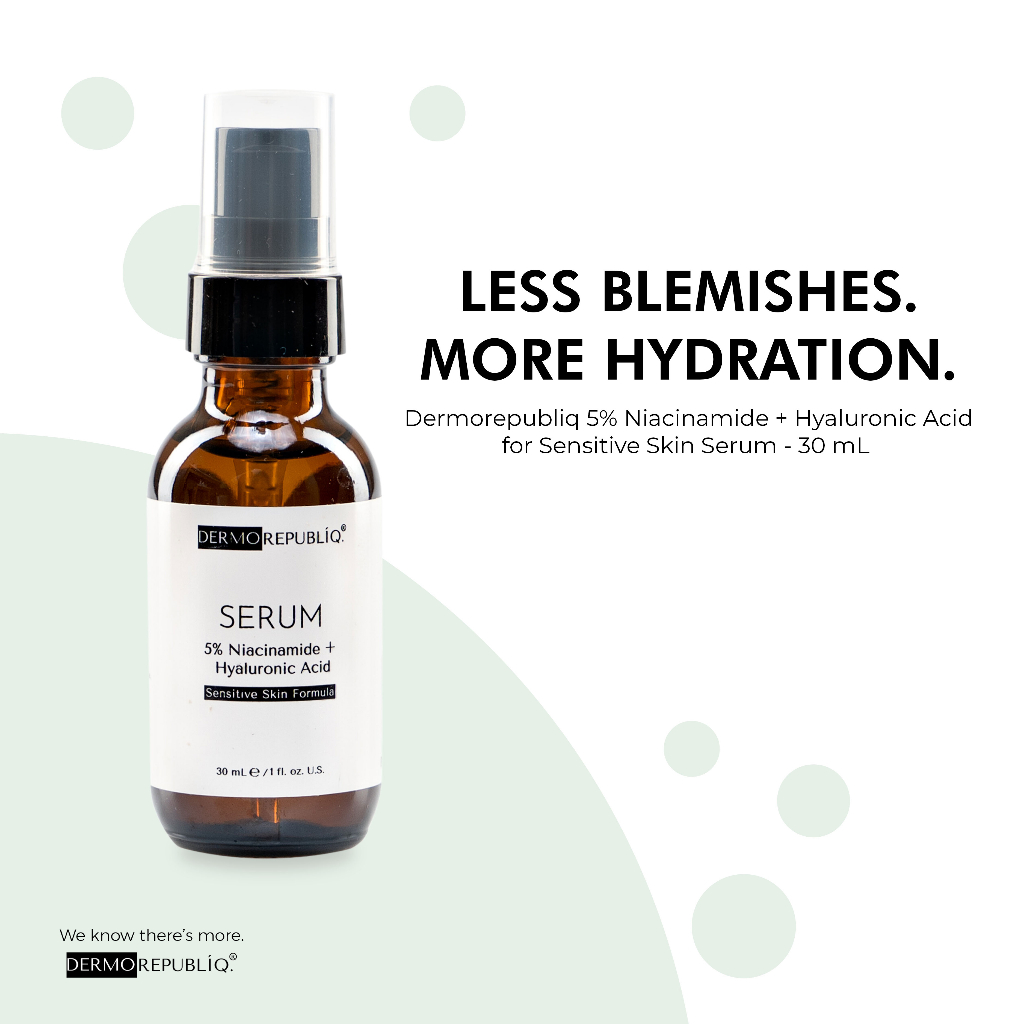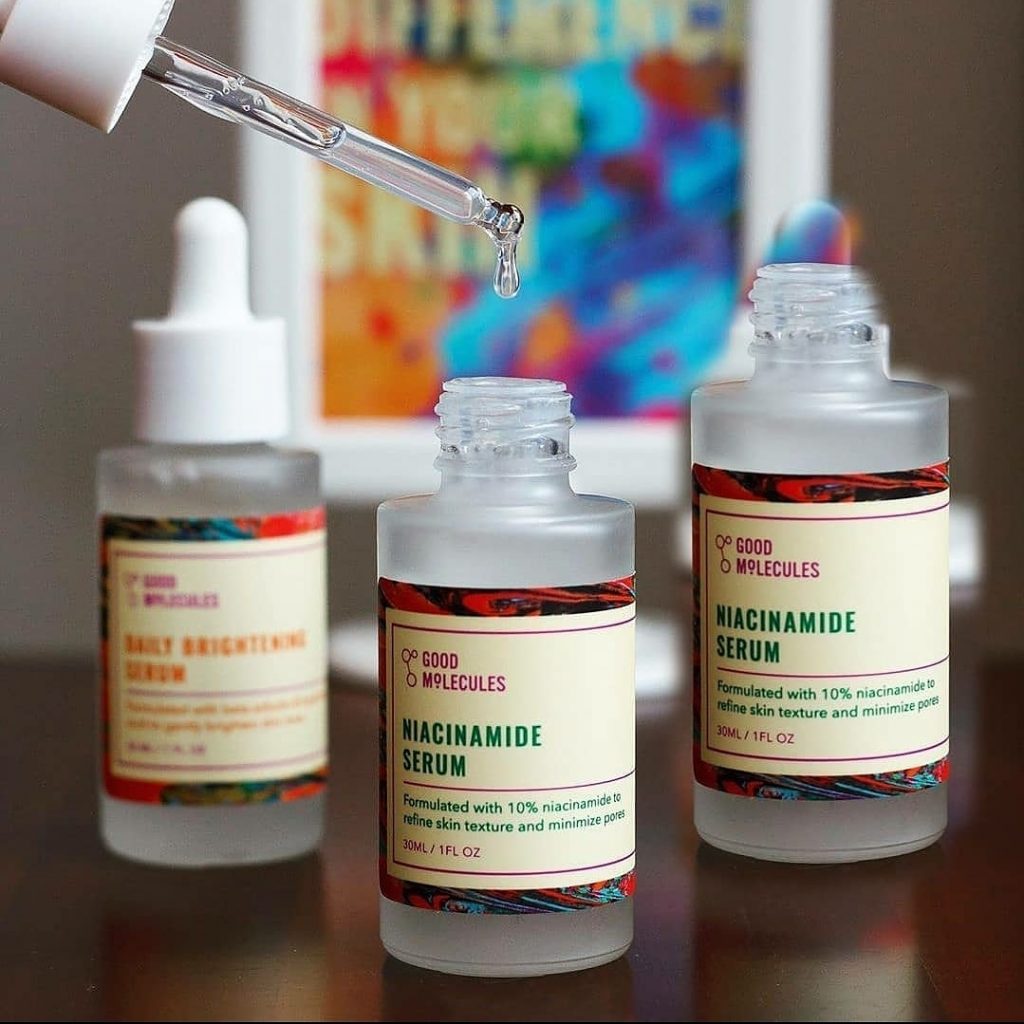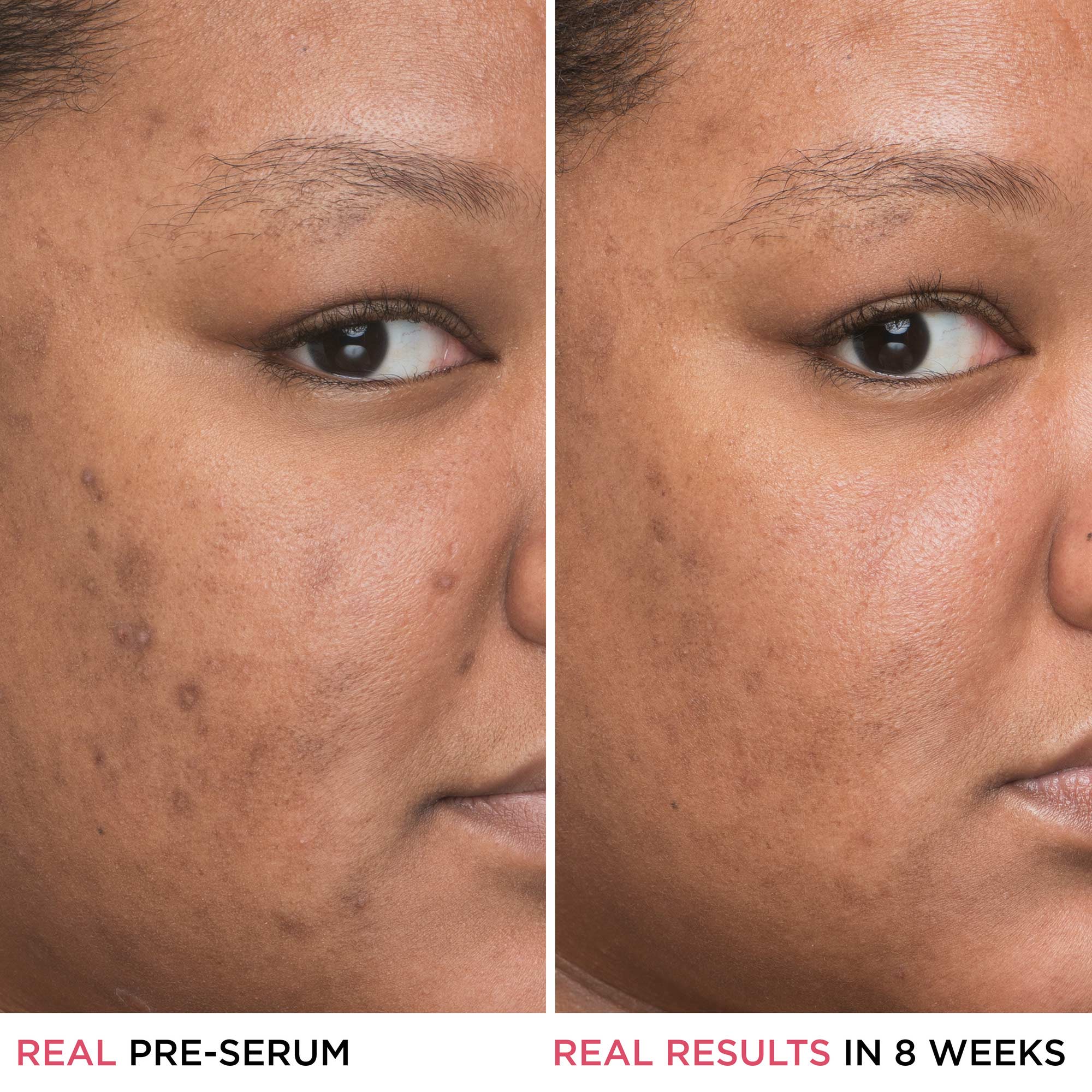Is Niacinamide Good For Sensitive Skin - A Gentle Approach
If you have skin that tends to get a little upset, perhaps it's often red, feels tight, or just reacts to almost anything you put on it, then you know the struggle is real. Finding products that don't make things worse can feel like a never-ending search, and you might feel a bit lost about what ingredients are truly safe to try. It's a common worry, and many people with delicate skin types are always on the lookout for something that offers a helping hand without causing more trouble.
So, when you hear about a popular skin care ingredient like niacinamide, it's only natural to wonder if it's actually something that could work for your particular skin situation. You might be curious if this ingredient, which seems to be popping up everywhere, is truly a friend to skin that needs a lot of gentle care, or if it's just another one of those things that might cause more irritation. It's a fair question, really, especially when your skin can be so easily bothered by new things.
This discussion will help clear up some of those questions about niacinamide, also known as nicotinamide. We'll look at what it is, how it helps your skin, and whether it’s a good choice for skin that tends to be quite sensitive. We will also touch on how you might use it and what to keep in mind, giving you a better idea of whether this popular ingredient could be a helpful addition to your daily skin care.
- Jason Segel Naked
- Medal Of Freedom Maya
- Did Brock From Reba Have A Stroke
- Law And Order Svu Season 23 Episode 20
- Young Tim Dillon
Table of Contents
- What is Niacinamide, Anyway?
- The Many Good Things Niacinamide Does for Your Skin
- Is Niacinamide Good for Sensitive Skin?
- How Do You Use Niacinamide on Your Skin?
- Beyond Skin Care- What Else Does Niacinamide Do?
- Are There Any Downsides to Using Niacinamide?
- Where Can You Find Niacinamide?
- Why Does Your Body Need Niacinamide?
What is Niacinamide, Anyway?
So, you might be wondering what this niacinamide stuff actually is, right? Well, it's pretty much a kind of vitamin B3. This is, you know, one of those important B vitamins our bodies need for many different aspects of our overall well-being. There are, as a matter of fact, eight B vitamins in total, and B3 is one of them. Niacinamide is one of two main forms of this particular vitamin B3, with the other one being something called nicotinic acid. They are related, but they do have their own specific roles and ways of working within your body.
Your body, quite interestingly, has a way of making niacinamide on its own. This happens, for example, when you happen to have a bit too much niacin already present. It’s a sort of balancing act, you could say, where your body tries to keep things in check. This process is part of how your system handles and uses these important nutrients. It's not just something you get from outside sources; your body is actually pretty clever about producing some of what it needs internally.
Niacinamide, which is also sometimes referred to as nicotinamide, is something you can find in a bunch of everyday foods. This includes, for instance, things like various meats, different types of fish, milk, and eggs. You’ll also find it in green vegetables, which is good to know, and in many cereals. So, it’s not really a rare substance; it’s actually quite common in the things we eat regularly. It's pretty much required for several important functions within your body, too, which we will get into a little more later.
- Discontinued Popsicle Products
- Lizzie The Musical Wikipedia
- Lainey Wilson Pittsburgh
- Thats So Raven Or Ravens Home Better
- Woman Pet
Basically, this form of vitamin B3 is a very important nutrient. It plays a role in keeping things running smoothly inside you. It’s not just about what it does for your skin, though that's a big part of why people talk about it so much. It's a fundamental part of your body's daily operations, helping with various cellular processes. This makes it, in a way, a truly essential component for maintaining good health, both inside and out.
The Many Good Things Niacinamide Does for Your Skin
When you put niacinamide on your skin, it can do a lot of good things. It has, for example, many proven benefits for the skin, and these are things that have been looked at scientifically. When you make it a part of your daily skin care routine, putting it on your skin, it helps with different skin conditions. For instance, it can help manage issues like acne, which many people deal with. It's quite versatile in how it supports skin health.
This vitamin B3, also known as nicotinamide, can help improve various skin conditions. It has, you know, shown promise in helping with things like acne, which can be a real bother for many. It also seems to help with the look of wrinkles, which is something a lot of people are interested in as they get older. And for those who have melasma, which is a condition that causes dark patches on the skin, it might offer some support there too. It's pretty interesting how one ingredient can potentially help with such a range of skin concerns.
Using niacinamide on your skin, which is often called applying it topically, can genuinely help keep your skin healthy. It's a way of giving your skin direct support where it needs it. It works to improve the overall condition of your skin, helping it to look and feel better. This means it's not just about addressing specific problems, but also about generally maintaining a good state for your skin. So, in some respects, it’s like a little helper for your skin’s well-being.
The benefits of using this ingredient are quite varied, and they cover a range of common skin concerns. It's not just a one-trick pony, you see. It supports the skin in multiple ways, helping with its appearance and its general health. This makes it, for many, a very appealing ingredient to consider adding to their regular skin care habits. It’s definitely something that offers scientific advantages for your skin, and it tends to come with very few unwanted effects.
Is Niacinamide Good for Sensitive Skin?
Now, to the big question: is niacinamide good for sensitive skin? Based on what we know, it generally seems to be a friendly option for skin that gets easily irritated. The text mentions it has minimal side effects when used on the skin. This is, you know, a pretty important point for anyone whose skin tends to react strongly to new products. If something is usually very well tolerated, it means fewer worries about redness or discomfort.
Because niacinamide can help with things like inflammation, which is a common issue for sensitive skin, it might actually bring some comfort. While the text doesn't specifically say "sensitive skin," it does talk about improving skin conditions and having few unwanted effects. This suggests it's less likely to cause a fuss compared to some other active ingredients. So, in a way, its gentle nature makes it a good candidate for those with a more delicate skin type. It's almost like it's designed to be less aggressive.
It’s also important that it’s generally very well tolerated. This means that most people who try it don’t experience a lot of problems. For someone with skin that's a bit reactive, this is a huge plus. You want something that works quietly in the background, helping your skin without drawing too much attention to itself through irritation. So, yes, it seems to be a good choice for sensitive skin because it tends to be gentle and has a low chance of causing issues.
How Do You Use Niacinamide on Your Skin?
When it comes to using niacinamide for your skin, the most common way is to apply it directly. This means, you know, putting it on your skin as part of your regular daily routine. You’ll often find it as an ingredient in various skin care products, like serums, moisturizers, or even cleansers. The idea is to let your skin absorb it so it can get to work on those benefits we talked about earlier.
For topical use, which is just a fancy way of saying putting it on your skin, it can be found in many different forms. You might see it in a serum, which is usually a lighter product you put on after cleansing but before moisturizing. Or, it could be mixed into your daily face cream. The key is to consistently use it as part of your regimen to see the best results. It's not really a one-time thing; it works better with regular application.
So, basically, you just add it to your existing skin care steps. If you're using a product with niacinamide, you'd apply it just like you would any other serum or cream. It’s pretty straightforward, actually. You don't need any special tools or complicated methods. Just make sure to follow the instructions on the product you choose, as concentrations can vary.
Beyond Skin Care- What Else Does Niacinamide Do?
Niacinamide is not just for your skin, believe it or not. It's also required for the proper function of how fats and sugars are handled in your body. This means it plays a part in your metabolism, helping your body convert food into energy. It’s pretty important for keeping those internal processes running smoothly, which is, you know, a big deal for your overall health. It helps your body manage these key nutrients effectively.
Furthermore, this form of vitamin B3 is important for keeping your cells healthy. It helps maintain the good condition of your cells throughout your body, which is fundamental to everything working as it should. Healthy cells mean healthy tissues and organs, so its role here is quite significant. It’s a basic building block for cellular well-being, in a way.
While we talk a lot about its skin benefits, niacinamide also shows promise in other areas. For example, it might help with lowering blood levels of certain things, though the text doesn't specify what. It can also, when taken orally, potentially help prevent skin issues like skin cancer. This suggests its benefits go deeper than just surface-level improvements, reaching into more serious health considerations. So, it's pretty versatile, actually.
However, it’s worth noting that niacinamide is different from niacin in some ways. Unlike niacin, niacinamide does not have the same beneficial effects on fats. So, if you're looking for something specifically for fat management in your body, this particular form of vitamin B3 might not be the right choice. It should not be used for those specific purposes where niacin might be recommended. This is a pretty important distinction to keep in mind.
Are There Any Downsides to Using Niacinamide?
Like with many things, while niacinamide is generally very well tolerated, there can be some potential side effects. These are not super common, but it's good to be aware of them. For instance, some people might experience things like diarrhea. This is, you know, a digestive upset that can happen. It's not something everyone gets, but it's a possibility.
Other potential issues might include easier bruising. This means your skin might show bruises more readily than usual. There's also a chance of increased bleeding from minor cuts or scrapes. These are, you know, typically mild effects, but they are something to keep in mind if you start using it, especially if you're taking it as a supplement. It’s not something to be overly worried about, but just something to be aware of.
Overall, it’s usually seen as a very safe ingredient with minimal side effects. The vast majority of people use it without any problems. However, if you do notice any of these effects, it’s always a good idea to pay attention to your body and maybe talk to a professional about it. It’s pretty much about listening to what your body tells you.
Where Can You Find Niacinamide?
You can find niacinamide in a couple of main places. As we talked about earlier, it’s found in many foods. This includes, you know, things like different types of meat, various kinds of fish, milk, eggs, and green vegetables. You’ll also often find it added to cereals, making it pretty accessible through your diet. So, getting some through your food is quite easy, actually.
Beyond food, niacinamide is also available as an oral supplement. This means you can take it in pill form if your body, for some reason, cannot absorb enough of it from your diet. These supplements may help treat specific skin conditions or just generally boost your vitamin B3 levels. They are, you know, typically considered safe, but it's always good to check with someone knowledgeable before starting any new supplement.
And of course, it's a popular ingredient in skin care products. You'll see it listed on the ingredient labels of many creams, serums, and lotions. For topical use, it can be found in a wide array of formulations. So, whether you want to get it through your diet, a supplement, or directly on your skin, there are quite a few ways to include this vitamin B3 in your routine. It's pretty much everywhere, in a way.
Why Does Your Body Need Niacinamide?
Your body actually makes niacinamide when you have too much niacin in your system. This highlights its role as a form of vitamin B3, which is an essential nutrient. Being an essential nutrient means your body needs it to work properly, but it can't always make enough of it on its own, or it needs specific conditions to do so. So, you know, getting it from outside sources like food or supplements is important.
Niacinamide is required for the proper function of fats and sugars in the body. This means it plays a pretty big role in how your body processes and uses energy from the food you eat. It’s also crucial for maintaining healthy cells throughout your body. These are fundamental processes that keep you going every day. Without enough of it, these basic functions might not work as smoothly as they should.
It’s a form of vitamin B3 that provides many health benefits to various parts of your body. This includes, for example, your skin, which we've talked about a lot. But it also helps your kidneys, your heart, your nerves, your gut, and your brain. And, you know, it helps other body organs too. It’s pretty much involved in a wide network of bodily functions, making it a very important nutrient for overall health.
So, while more research is always helpful, taking niacinamide may help reduce inflammation, which is good for many body systems. It might also improve skin elasticity, making skin look and feel more supple. It's an important nutrient for the body, generally speaking, and it supports a lot of key processes that keep you feeling well. It’s just one of those things your body really does need.
- Noah Eagle Wig
- Wife Going On A Date With Another Man
- Thats So Raven Or Ravens Home Better
- Cameron Brink Pantyhose
- Trump New Gold Card

5% Niacinamide + Hyaluronic Acid Sensitive Skin Formula Serum - 30 mL

GOOD MOLECULES Niacinamide Serum 30ml - Dream Skin Haven

Is Niacinamide Good For Oily Skin? - GA Fashion